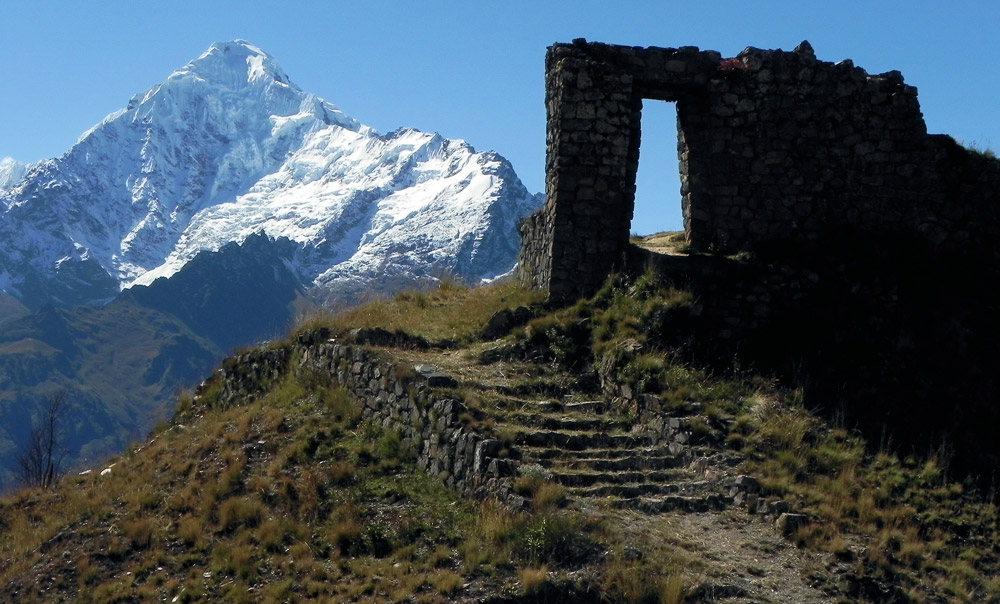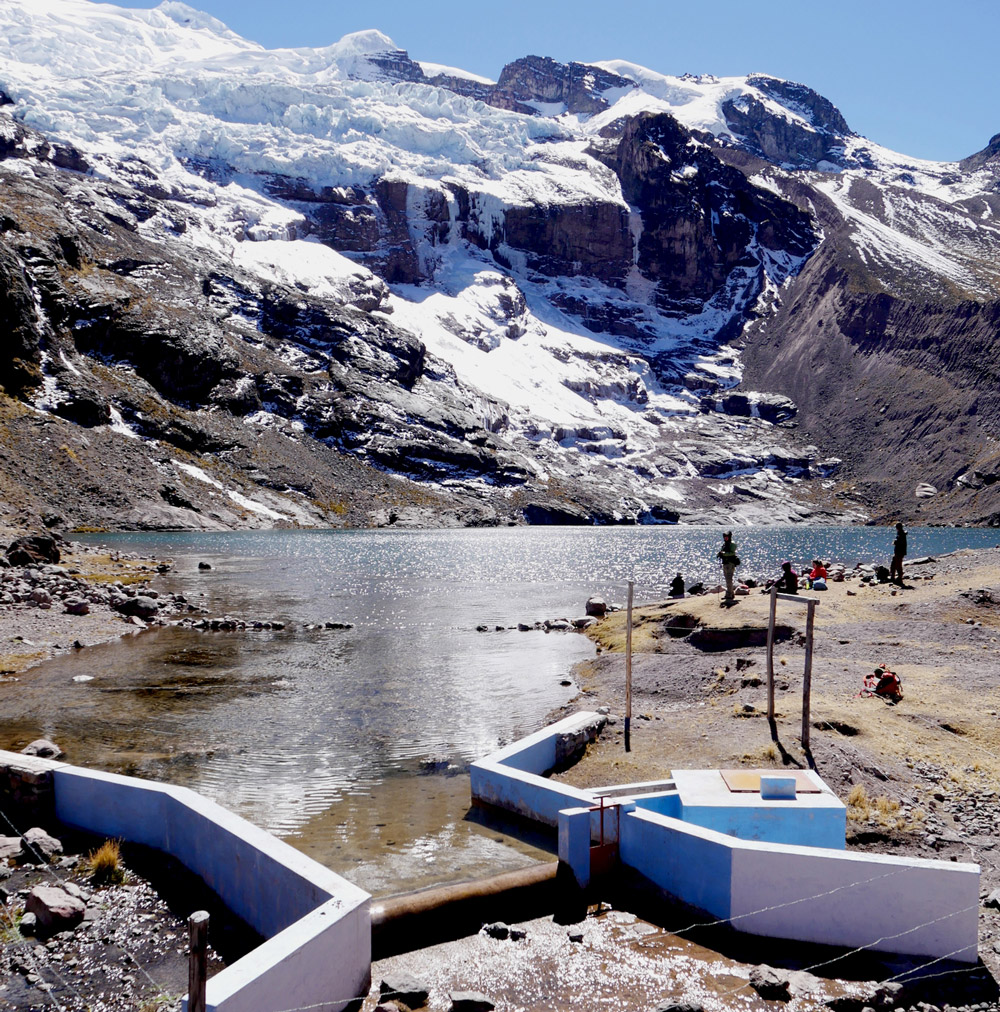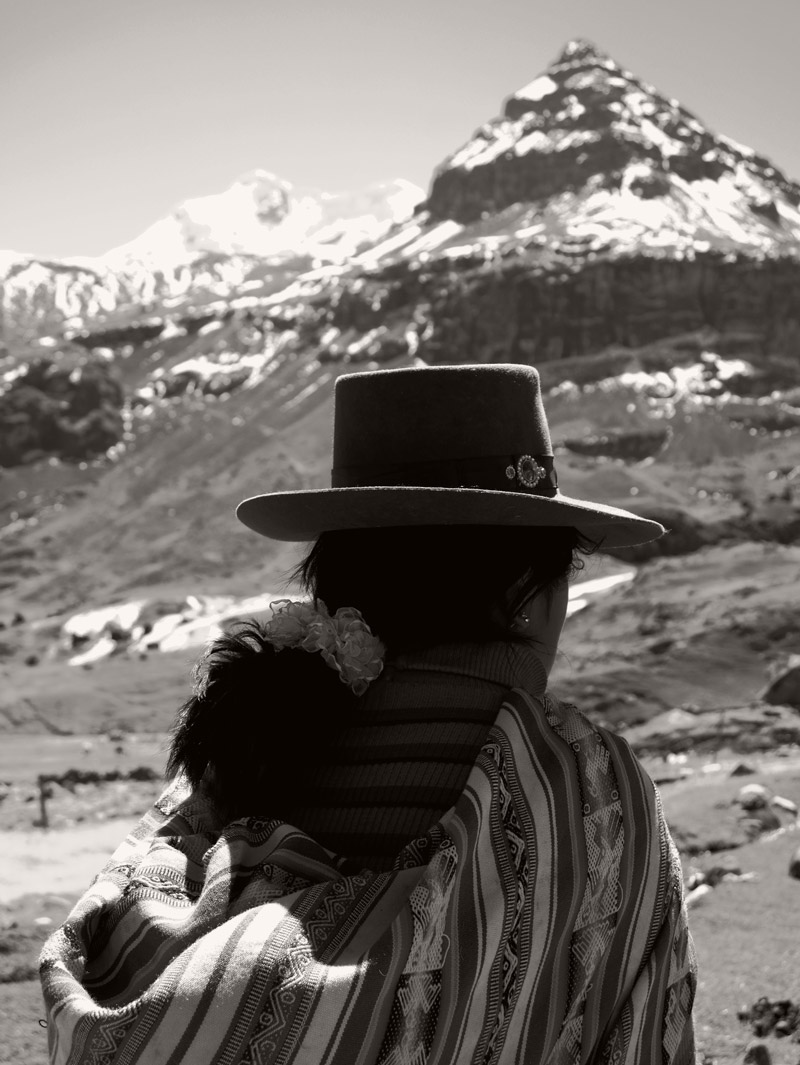#117: Andean mountain regions: Fragile sentinels of landscape and cultural transformation
Mountain regions are biodiversity hotspots and provide half of humanity with freshwater for everyday life. Their conservation is a key factor for sustainable development. Today is the International Mountain Day.

The International Mountain Day has been celebrated every 11 December since 2003, promoted by the Food and Agriculture Organization (FAO) of the United Nations. It reminds us of the fragility of mountain systems. About 14% (1.1 billion) of the world's population live in mountain areas and another 23% (1.8 billion) in the lowlands connected to mountains. These regions provide 60-80% of drinking water and are home to around half of the world's terrestrial biodiversity. At the same time, they are the origin of multiple crops and contain a wide cultural diversity including indigenous and ancestral traditions and knowledge.
But mountain regions with their culture, people and sensitive environments have often been neglected by national and international science and politics. For example, the tropical Andes that are a priority region of our research group. They host several large urban capitals, including Bogotá, Quito and La Paz where the ice-capped peaks can be seen on clear days. These systems have to be conserved and adapted to climate change and socio-economic pressure.

Transformation of glacier landscapes calls for adaptation
From Venezuela to Bolivia, the tropical Andes hold about 1500 km² of glacier extent which is rapidly reducing. Vanishing of these glaciers has serious implications for human well-being and ecosystems: Hydrological risks, increasing occurrence of disasters, impacts on cultural values and others.
Within the next few years, Venezuela will become the first postglacial country in the world: It will no longer feature a single glacier. We are already witnessing a transformation of landscapes that will become even more evident in the coming decades. Multiple majestic white peaks will disappear, new glacier lakes will be formed - associated with the risk of outbursts - and flora and fauna will be situated in previously unpopulated high mountain locations. Additionally, increasing pressure on natural resources driven by population and economic growth is expected to occur particularly in the adjacent lowlands. These changes and impacts require flexible and effective measures of intersectoral and multilevel adaptation. Only this way human subsistence and well-being can be ensured.

Effective policies are needed, but will not bring about change alone
Peru assumes a pioneering role in Latin America to achieve the Sustainable Development Goals through different national policies for mitigation and adaptation to climate change explicitly including mountain regions. Among these policies are the Nationally Determined Contributions (2018, recently updated), the Framework Law on Climate Change (2018) and the National Policy on Glaciers and Mountain Ecosystems (underway).
However, no law alone can bring about the change. Instruments and mechanisms have to be implemented to increase the resilience of social-ecological systems. The political crisis in Peru and the 'stress test' that the current pandemic represents, reveal several institutional and structural weaknesses. These need to be addressed beyond creating new laws and institutions.
Every year the International Mountain Day reminds us of the fragility of mountain systems. These regions of rapid change and transformation offer a unique laboratory to develop and implement a diverse set of mitigation and adaptation measures. In this context, robust strategies and decisions will be key to guarantee water security and human subsistence on the long term.
GIUZ researchers involved in international scientific policy assessments of mountain regions Currently, the Sixth Assessment Report (AR6) of the Intergovernmental Panel on Climate Change (IPCC) is being prepared and will be published in 2022. This report will contain for the first time the Cross-Chapter on Mountains. It represents a unique opportunity to leverage mountain research and support international and regional decision-making based on a comprehensive scientific baseline. Several GIUZ researchers are contributing to the IPCC report and in particular to the mountain chapter, reflecting the long-term expertise at our department in interdisciplinary mountain research. |
Fabian Drenkhan, Christian Huggel
